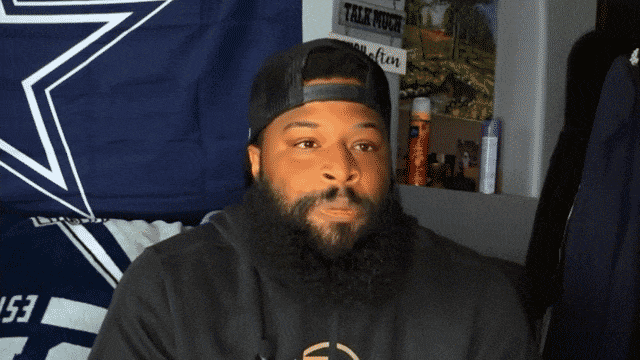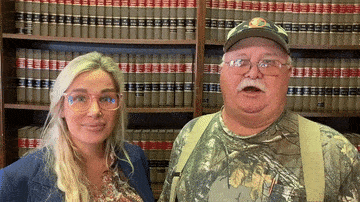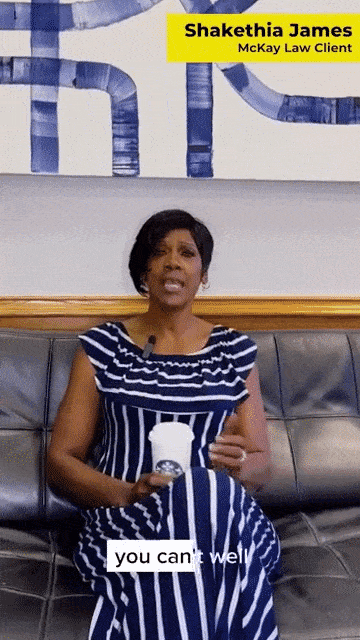“Texas Tough” McKay Law
Texas Uber Eats Accident Lawyer
When accidents involving Uber Eats drivers disrupt lives, McKay Law is here to help. As a leading Texas Uber Eats accident lawyer, McKay Law specializes in navigating the unique challenges of delivery accidents, offering unmatched expertise and a relentless commitment to justice. With a strong focus on putting clients first, McKay Law works tirelessly to secure fair compensation for victims, ensuring they are supported every step of the way. Whether it’s dealing with insurance companies or understanding the complexities of rideshare liability, McKay Law provides the guidance and advocacy needed to achieve the best possible outcome for their clients.
NO FEES UNLESS WE WIN!
We only get paid when you get paid.
Receive Immediate Medical Care
Get the medical attention you need with no out-of-pocket cost in most cases.
24/7 Access To Us
We are here for you 24/7 so you can focus on healing.
Client Satisfaction
McKay Law has a reputation to be proud of with 300+ 5 star Google Reviews.
Texas Uber Eats Accident Attorney | McKay Law
Navigating an Uber Eats accident case in Texas can be overwhelming, but McKay Law stands out as a trusted partner for victims seeking justice. The skilled legal team at McKay Law has extensive experience handling Uber Eats accident claims, understanding the unique hurdles that these cases present. From complex gig economy insurance policies to questions of liability between drivers, delivery platforms, and involved parties, McKay Law effectively guides clients every step of the way. Their expertise ensures that victims aren’t left to fend for themselves in a confusing legal landscape, equipping them with the advocacy needed to achieve fair outcomes.
At McKay Law, the focus is always on securing justice and maximum compensation for accident victims. Whether it’s medical bills, lost wages, or pain and suffering, the firm is dedicated to holding the responsible parties accountable. They recognize the intricacies of Uber Eats accidents, such as coverage ambiguities in third-party insurance policies, and utilize a strategic approach to build strong cases for clients. This commitment to excellence is why so many Texans turn to McKay Law for their legal representation after a delivery-related accident.
What truly sets McKay Law apart is their personalized approach. The attorneys understand that every case is unique, and they take the time to listen, understand, and tailor their strategies to fit each client’s situation. By combining empathy with unparalleled legal expertise, the firm helps clients feel supported during challenging times. Their client-first approach, coupled with their ability to tackle the nuances of gig economy accidents, makes McKay Law the go-to attorney for Uber Eats accident cases in Texas.
Understanding Uber Eats Accidents in Texas
1. Common Causes of Uber Eats Accidents
Delivery drivers for Uber Eats face unique challenges that can increase the likelihood of accidents. Some of the most common causes include:
- Driver Fatigue: Many Uber Eats drivers work long hours, often juggling multiple jobs or driving late at night to maximize earnings. Fatigue can impair judgment, slow reaction times, and increase the risk of accidents.
- Distracted Driving: Delivery drivers rely heavily on navigation apps to find customer locations, which can lead to distractions. Additionally, responding to customer messages or app notifications while driving can divert attention from the road.
- Speeding and Reckless Driving: The pressure to meet tight delivery deadlines or complete more orders in less time can lead to speeding, running red lights, or other risky behaviors.
- Unfamiliar Routes: Drivers often operate in areas they are not familiar with, which can lead to confusion, sudden stops, or wrong turns, increasing the likelihood of collisions.
- Road and Weather Conditions: Poorly maintained roads, construction zones, and adverse weather conditions like rain or fog can make driving more hazardous for delivery drivers.
- Increased Traffic in Urban Areas: High-density areas like cities in Texas (e.g., Houston, Dallas, Austin) often have heavy traffic, making it more challenging for drivers to navigate safely.
2. Legal and Insurance Implications
Accidents involving Uber Eats drivers can lead to complex legal and insurance issues. Here’s a closer look:
- Determining Liability: In the event of an accident, determining who is at fault can be complicated. Liability may fall on the Uber Eats driver, another motorist, or even Uber Eats itself, depending on the circumstances.
- Insurance Coverage: Uber Eats provides insurance coverage for drivers, but it varies depending on the driver’s status:
- Offline: When the driver is not using the app, their personal auto insurance applies.
- Online but Waiting for Orders: Uber Eats provides limited liability coverage.
- Active Delivery: During an active delivery (from accepting an order to completing it), Uber Eats offers more comprehensive coverage, including liability, uninsured/underinsured motorist coverage, and contingent collision coverage.
- Legal Recourse for Victims: Victims of accidents involving Uber Eats drivers, whether they are pedestrians, other motorists, or passengers, may pursue compensation for medical expenses, lost wages, property damage, and pain and suffering. However, navigating these claims can be challenging due to the involvement of multiple parties and insurance policies.
3. Safety Measures and Recommendations
To reduce the frequency of accidents involving Uber Eats drivers, several safety measures can be implemented:
- Driver Training Programs: Uber Eats could provide mandatory training for drivers on safe driving practices, defensive driving techniques, and how to handle distractions.
- Technology Solutions: Advanced technology, such as in-app features that monitor driver behavior (e.g., speeding, hard braking, or phone usage while driving), can help identify risky behaviors and encourage safer driving.
- Encouraging Breaks: Implementing policies that encourage drivers to take regular breaks during long shifts can help combat fatigue.
- Public Awareness Campaigns: Educating both drivers and the public about road safety, sharing the road with delivery drivers, and the importance of avoiding distractions can contribute to safer roads.
- Improved Infrastructure: Cities in Texas can invest in better road infrastructure, including bike lanes, delivery zones, and clearer signage, to support safer driving conditions for delivery drivers.
4. Statistics and Trends
Understanding the scope of Uber Eats accidents in Texas requires analyzing data and trends. While specific statistics may vary, here are some key areas to consider:
- Frequency of Accidents: How often do accidents involving Uber Eats drivers occur in Texas? Are there specific cities or regions with higher rates of incidents?
- Types of Accidents: What types of accidents are most common? For example, are they more likely to involve rear-end collisions, pedestrian accidents, or single-vehicle crashes?
- Time of Day: Are accidents more likely to occur during peak delivery hours, such as lunch and dinner times, or late at night when visibility is reduced?
- Impact on Vulnerable Road Users: How often do these accidents involve pedestrians, cyclists, or motorcyclists, who are more vulnerable to severe injuries?
- Comparisons to Other Delivery Services: How do Uber Eats accident rates compare to those of other delivery platforms like DoorDash or Grubhub?
Collecting and analyzing this data can help identify patterns and inform targeted interventions to improve safety.
5. The Broader Impact
Accidents involving Uber Eats drivers not only affect the individuals directly involved but also have broader implications for communities and the gig economy:
- Economic Costs: Accidents can result in significant financial losses, including medical bills, vehicle repairs, and lost income for drivers.
- Emotional Toll: Both drivers and victims may experience emotional distress, anxiety, or trauma following an accident.
- Reputation of Delivery Platforms: A high rate of accidents can harm the reputation of companies like Uber Eats, leading to calls for stricter regulations and oversight.
- Policy Changes: Increased awareness of these accidents may prompt policymakers to introduce new regulations aimed at improving safety for gig economy workers and the public.
Conclusion
Understanding Uber Eats accidents in Texas requires a multifaceted approach that considers the causes, legal complexities, safety measures, and broader societal impacts. By addressing these issues, stakeholders—including Uber Eats, drivers, policymakers, and the public—can work together to create safer roads and a more sustainable gig economy.
Lindsey McKay Takes Texas Uber Eats Accident Cases Seriously
When an accident happens involving an Uber Eats driver, it can leave victims confused and overwhelmed. Who’s responsible? How can compensation be pursued? If you’re in Texas and find yourself grappling with these questions, Lindsey McKay is the advocate you need.
Lindsey McKay, a seasoned personal injury lawyer, understands the unique challenges of handling accident cases involving gig economy companies like Uber Eats. Her unwavering dedication ensures that victims don’t have to walk this difficult road alone. With her expertise and compassionate approach, she fights tirelessly for fair compensation so her clients can focus on healing.
Why Uber Eats Accident Cases Are Different
Accidents involving Uber Eats drivers are unlike ordinary car accident cases. The rise of the gig economy has introduced complex legal and insurance issues. Drivers working for companies like Uber Eats are often classified as independent contractors instead of employees. This distinction can impact liability and how insurance coverage applies in case of an accident.
For example, Uber Eats generally provides limited liability coverage for drivers, which only applies under certain conditions, such as when the driver is actively making a delivery. Determining which insurance policy applies—whether it’s that of the driver, Uber Eats, or another party—requires a deep understanding of both personal injury law and the intricacies of gig economy business models. Lindsey McKay has this understanding, making her a trusted advocate for accident victims.
Lindsey McKay’s Expertise in Uber Eats Cases
Mastering the Legal Complexities
Lindsey McKay has built her reputation by taking on complex cases other attorneys hesitate to tackle. Her intricate knowledge of Texas traffic laws, combined with her experience in cases involving rideshare and delivery companies, allows her to unravel the layered challenges of Uber Eats-related accidents.
McKay is well-versed in identifying responsible parties and digging deep to uncover evidence that supports her clients’ claims. From obtaining driving records and delivery logs to negotiating aggressively with insurance carriers, she ensures every angle of a case is explored.
Commitment to Clients
At the heart of Lindsey McKay’s practice is a commitment to helping individuals rebuild their lives after an accident. Victims of Uber Eats accidents often face stressful recoveries, mounting medical bills, and lost wages. Lindsey works not just to pursue the compensation they deserve but also to provide peace of mind throughout the process.
Her legal team prioritizes communication, ensuring clients feel supported every step of the way. Lindsey knows that empathy and understanding are just as important as legal expertise when navigating the aftermath of an accident.
Winning Fair Compensation
One of Lindsey’s top goals is simple but powerful—securing fair compensation for her clients. Whether negotiating settlements or taking cases to trial, she fights relentlessly to ensure losses are fully addressed. This includes compensation for:
- Medical expenses related to injuries
- Lost wages and reduced earning capacity
- Pain and suffering
- Rehabilitation and therapy costs
- Property damage
With her strategic approach and fearless advocacy, Lindsey McKay sets the bar for what it means to represent accident victims effectively.
Why You Should Act Quickly After an Accident
If you or a loved one has been involved in an accident with an Uber Eats driver, it’s crucial to act quickly. Important evidence—such as witness accounts and delivery app records—can be harder to access as time passes. Additionally, Texas law imposes a statute of limitations on personal injury claims. Missing these deadlines can jeopardize your ability to pursue compensation.
Reaching out to Lindsey McKay as early as possible allows her to begin building a strong case for you. From gathering evidence promptly to filing all documents within the required timeframe, you’ll have a trusted partner at your side handling every detail.
How Lindsey McKay Can Help You
When you choose Lindsey McKay, you’re choosing a legal advocate who truly cares. Here’s what you can expect when working with her:
- Comprehensive Legal Guidance – Lindsey will explain your rights, answer your questions, and outline the best course of action for your case.
- Thorough Investigation – Her team will gather every piece of evidence to build a watertight case on your behalf.
- Aggressive Negotiation – She will handle all communications with insurance companies to secure the maximum settlement possible.
- Skilled Trial Representation – If a fair settlement can’t be reached, Lindsey has the experience and confidence to take your case to court.
With a proven track record of success and a passion for justice, Lindsey McKay stands out as a trusted advocate for anyone injured in Uber Eats-related accidents in Texas.
Real Success Stories: Building Trust Through Results
Lindsey McKay’s dedication is evident in her proven results. She has successfully represented many Texans facing difficult circumstances after Uber Eats accidents. In one case, she helped a family secure compensation for serious injuries despite initial denial by the delivery company’s insurer. In another, she negotiated a settlement that included not only medical expenses but also lost wages and pain and suffering. These success stories highlight Lindsey’s commitment to going above and beyond for her clients—providing reassurance that you have an experienced ally on your side.
Contact Lindsey McKay Today
If you’ve been affected by an Uber Eats accident, don’t face the battle for compensation alone. Lindsey McKay is here to help you every step of the way. Take control of your recovery and protect your rights by contacting her legal office today.
Schedule a Free Consultation
Your road to justice begins with a conversation. Call Lindsey McKay’s office or visit her website to schedule a free, no-obligation consultation. Let her dedicated team guide you toward securing the compensation you need to move forward.
Don’t Wait—Get the Help You Deserve
Justice doesn’t wait, and neither should you. Reach out to Lindsey McKay now for the dedicated legal representation you deserve after an Uber Eats accident. Together, you can tackle the challenges ahead and take the first steps toward a brighter future.
What Are The Most Common Types Of Uber Eats Accident Injuries In Texas?
Uber Eats accidents in Texas can lead to a variety of injuries, depending on the nature and severity of the incident. Here are some of the most common types of injuries associated with Uber Eats accidents:
Whiplash and Neck Injuries: Sudden impact can cause the neck to jerk violently, leading to soft tissue damage, whiplash, or even more severe spinal injuries.
Back and Spinal Cord Injuries: These can range from herniated discs to severe spinal cord damage, potentially resulting in paralysis.
Head and Brain Injuries: Traumatic brain injuries (TBIs) are common in high-impact collisions, leading to concussions, memory loss, or long-term cognitive issues.
Broken Bones and Fractures: The force of a collision can cause fractures in arms, legs, ribs, and other parts of the body.
Internal Injuries: Damage to internal organs, such as the liver, spleen, or lungs, can occur due to the impact or crushing injuries.
Burns: If the accident involves a fire or explosion, victims may suffer from severe burns requiring extensive medical treatment.
Cuts and Lacerations: Broken glass, metal, or debris can cause deep cuts, leading to scarring or infections.
Amputations: In severe cases, limbs may be crushed or severed, resulting in amputation.
Psychological Injuries: Beyond physical harm, victims may experience PTSD, anxiety, or depression following a traumatic accident.
Fatal Injuries: Unfortunately, some commercial vehicle accidents result in fatalities due to the sheer force and impact involved.
If you or someone you know has been involved in an Uber Eats accident in Texas, it’s crucial to seek medical attention immediately and consult with a legal professional to understand your rights and options.
What Damages Can I Receive from a Texas Uber Eats Crash Claim?
An accident involving an Uber Eats delivery driver can leave you facing unexpected challenges—from mounting medical bills and lost wages to emotional distress and long-term physical limitations. These situations can be overwhelming, especially if you’re unsure of your legal options or how to navigate the claims process. If you’ve been in a crash caused by a delivery driver in Texas, you may be wondering what compensation you’re entitled to claim and where to start.
Understanding the types of damages you can recover is essential for protecting your rights and ensuring a fair settlement. Compensation may include medical expenses, lost income, pain and suffering, damage to your vehicle, and, in some cases, punitive damages. Depending on the circumstances, both the delivery driver and the company they work with could be held liable.
This blog will walk you through the specific types of compensation available in a Texas Uber Eats crash claim, helping you grasp the full range of your options and take the first steps toward recovery. Whether the accident resulted in minor injuries or more serious consequences, knowing your rights can make all the difference in securing the justice and support you deserve.
1. Medical Expenses
One of the most immediate concerns after an accident is how to pay for medical treatment. Fortunately, you’re entitled to seek compensation for all medical costs related to the crash. These expenses can include:
- Emergency room visits
- Doctor consultations
- Surgery
- Medication
- Physical therapy
- Diagnostic tests such as X-rays or MRIs
- Ongoing treatments for lasting injuries
Keep detailed records of all your medical bills and treatment-related documentation, as they’ll play a critical role in calculating your damages.
2. Lost Wages
If the crash leaves you unable to work, either temporarily or permanently, you have the right to recover lost wages. This includes:
- Income you’ve already lost due to time missed from work.
- Future earning potential if your injuries affect your ability to perform your job as before.
For example, if you need an extended recovery period or have suffered permanent impairments, your compensation can account for the wages you’re likely to lose down the line.
3. Property Damage
Being involved in an accident with an Uber Eats driver may also result in damage to your vehicle or other personal property. Insurance claims can cover:
- Car repair or replacement costs
- Damage to belongings inside your vehicle, such as electronics or personal items
Be sure to get a repair estimate from a trusted mechanic or documentation from your insurer to support your claim.
4. Pain and Suffering
Not all consequences of an accident are purely financial—physical pain and emotional distress also deserve recognition. While pain and suffering are harder to calculate than medical bills or lost income, they can significantly impact your quality of life.
Here’s how courts and insurers typically approach this type of damage:
- Physical pain: This includes ongoing discomfort, chronic pain, or the long-term effects of severe injuries.
- Mental anguish: Many accident victims suffer from anxiety, depression, PTSD, or other emotional challenges related to the crash.
The amount you can claim will depend on the severity of your injuries and their impact on your day-to-day activities.
5. Loss of Enjoyment of Life
This type of non-economic damage compensates for changes that prevent you from enjoying the life you lived before the crash. For instance, if your injuries stop you from engaging in hobbies, sports, or other activities you once cherished, you may be eligible for compensation.
6. Wrongful Death Damages (in Fatal Cases)
If you’ve lost a loved one due to an accident caused by an Uber Eats driver, your family might be entitled to file a wrongful death claim. Damages in such cases could include compensation for:
- Funeral and burial costs
- Loss of companionship or parental guidance
- Loss of financial support
While no settlement can replace a loved one, these damages aim to ease the financial and emotional challenges faced by their surviving family members.
7. Punitive Damages
Although rare, punitive damages may be awarded in cases where the driver’s actions were especially reckless or negligent. These damages aim to punish egregious behavior and deter similar conduct in the future. For example, if an Uber Eats driver was found to be driving under the influence or repeatedly breaking traffic laws, punitive damages might apply.
Legal Factors to Consider in Texas Uber Eats Crash Claims
Insurance Coverage
Uber Eats drivers are required to carry their personal auto insurance. Additionally, Uber Eats offers supplemental insurance that may cover damages depending on the circumstances of the crash. This supplemental policy usually applies when the driver is actively using the app for deliveries. However, navigating these policies can be complex, which is why legal expertise is often necessary to maximize your claim.
Texas Comparative Fault Rules
Under Texas’ comparative fault law, your compensation may be reduced if you’re found partially at fault for the accident. For example, if you’re deemed 20% responsible for the accident, your total compensation will decrease by that percentage. If your fault exceeds 50%, you may not be eligible to recover any damages. It’s crucial to gather strong evidence supporting your case to minimize disputes over fault.
Final Thoughts
Accidents involving Uber Eats delivery drivers can lead to a range of damages, from substantial medical expenses to emotional loss. Knowing your rights in Texas and understanding the types of compensation available are vital for recovering your losses. Whether your claim includes medical bills, property damage, or intangible losses like pain and suffering, make sure all aspects of your case are thoroughly considered.
If you’ve been involved in a crash with an Uber Eats driver, don’t wait. Contact a skilled personal injury attorney today to ensure you get the full compensation you deserve. They have the expertise to guide you every step of the way, giving you the confidence and support you need in such a challenging time.
The Texas Tough Difference
See why so many others choose McKay Law, PLLC
With over 300 five-star reviews, McKay Law, your local Personal Injury Law Firm has earned the trust and gratitude of our clients. Every case we handle is unique, and every client’s story matters. Don’t just take our word for it—hear directly from our clients about their experiences and why they confidently recommend us to others.
Uber Eats Accident FAQs
- Answer: If you’re in an accident while delivering, prioritize your safety and the safety of others. Call emergency services if needed. Report the accident to Uber Eats through the app under the “Help” section. You should also notify your insurance provider as soon as possible.
- Answer: Yes, Uber Eats provides insurance coverage for delivery drivers, but it depends on the situation. Coverage typically includes:
- Third-party liability: Covers damages to others if you’re at fault.
- Contingent collision and comprehensive coverage: Covers your vehicle if you have personal insurance with collision coverage.
- Uninsured/underinsured motorist coverage: Protects you if the other driver is at fault and doesn’t have sufficient insurance.
Coverage applies only while you’re actively delivering (i.e., when you’re on a trip or en route to pick up an order).
- Answer: If you’re injured, Uber Eats provides an optional injury protection insurance plan in some regions. This plan may cover medical expenses, disability payments, and survivor benefits. Check your app or local Uber Eats policies to see if you’re enrolled.
- Answer: If the accident wasn’t your fault, you can file a claim with the at-fault driver’s insurance. Uber Eats’ insurance may also provide coverage if the other driver is uninsured or underinsured, depending on the circumstances.
- Answer: Yes, you must have your own auto insurance policy that meets your state’s minimum requirements. Uber Eats’ insurance is supplemental and only applies during active deliveries.
- Answer: To report an accident:
- Open the Uber Eats app.
- Go to the “Help” section.
- Select “Trip Issues and Adjustments” and then “I was in an accident.”
- Provide the necessary details and follow the instructions.
- Answer: Not necessarily. Uber Eats may temporarily deactivate your account while they investigate the incident. Once the investigation is complete, your account may be reactivated if no violations occurred.
- Answer: If the food is damaged, report it through the app. Uber Eats may compensate the customer and handle the situation. You won’t typically be held responsible for the cost of the food.
- Answer: It depends on the severity of the accident and the condition of your vehicle. If your vehicle is safe to drive and you’re not injured, you may continue delivering. However, it’s best to ensure all necessary reports are filed first.
- Answer: Cyclists and pedestrians should also report accidents through the app. Uber Eats may provide some coverage, but it’s important to check local policies. Personal health insurance may also be necessary to cover injuries.






